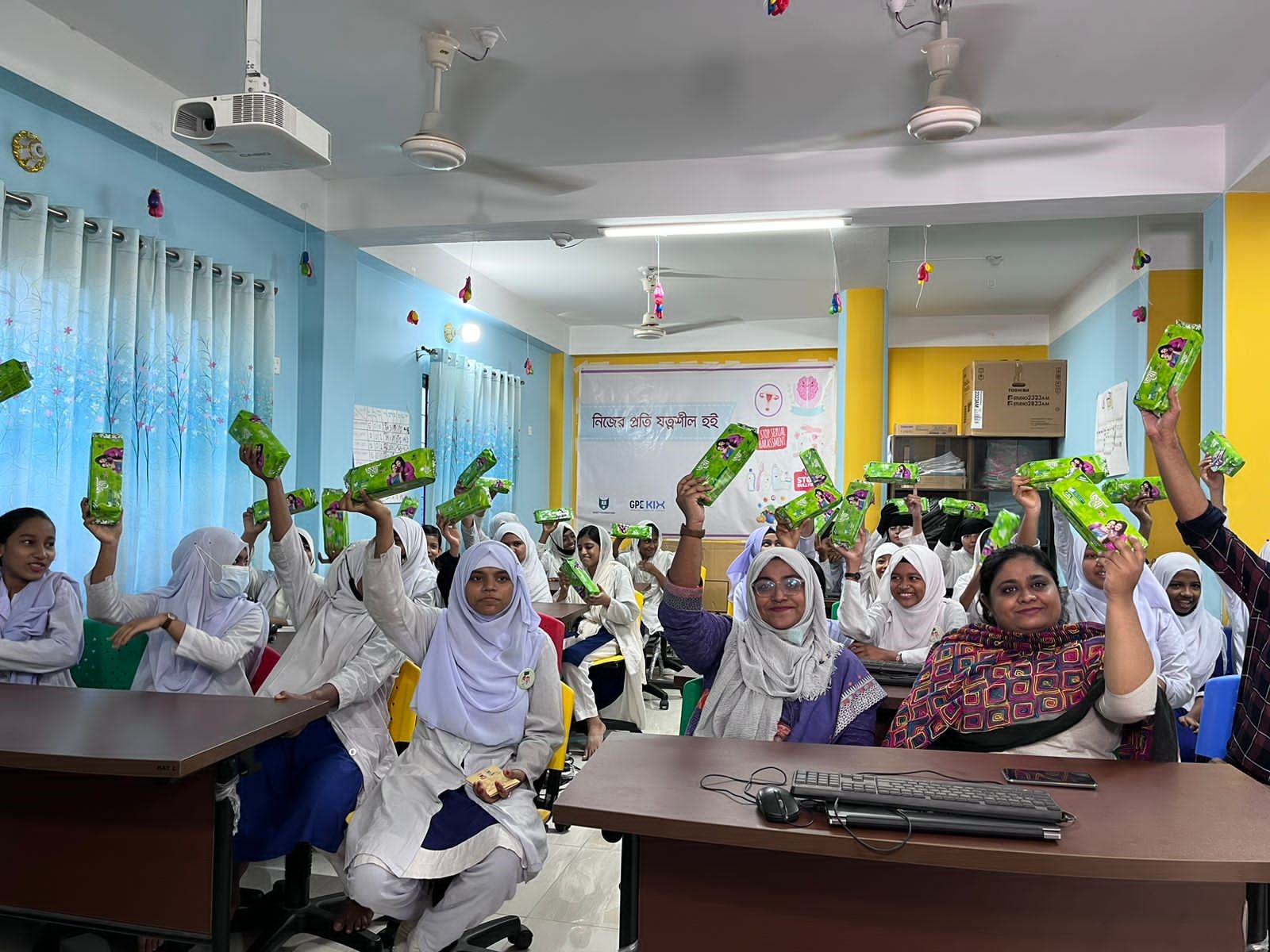SAIST Foundation, a non-profit organization, working towards preventing absenteeism, and promoting the well-being and education of school students in marginalized communities conducting a longitudinal study on “Effectiveness and Scalability of students who are out of school and at risk of dropping out in Bangladesh”, supported by IDRC and GPE KIX. To prevent absenteeism due to menstrual issues and hygiene management in schools, SAIST Foundation recently organized a series of comprehensive menstrual hygiene sessions for school girls in the study areas. These sessions aimed to address the critical issue of menstrual health and hygiene among adolescent girls, as well as to encourage them to continue schooling overcoming the barricades.
From the baseline study among 295 secondary school going students, 87.42% of female students are menstruating, about 45% miss school at least for the first 2 days of the monthly cycle in general, and around 10% of girls prefer not to attend classes for the whole menstruating days. Importantly, most girls explained their absences because of discomfort, sickness, shyness, or to avoid embarrassing mishaps in class. Even though many girls knew menstruation is a normal physiological process, they lacked knowledge of the menstrual cycle and basic menstrual hygiene.Consequently, they felt shy, scared, embarrassed, and considered menstruation as a taboo. Furthermore, 36% of them considered menstruation is not a normal physiological process. Surprisingly more than half of them perceivedthat the source of menstrual blood is the abdomen, whereas only 15% knew this information correctly. However, the majority of the female students answered correctly the question regarding the duration and cycle of menstruation, while one-fifth of them still possessed poor menstrual knowledge.
From June to August 2023, menstrual hygiene sessions were conducted with the aim of providing a safe and inclusive learning environment to offer essential knowledge about menstrual hygiene management among female students. The sessions covered various aspects, including menstrual cycle education, proper sanitary product usage, hygiene practices, and the importance of self-care during menstruation. The sessions were conducted by experienced public health professionals and educators specializing in women's health to ensure that the information imparted was accurate and evidence based. To make the sessions effective and fruitful, both theoretical discussion and practical demonstrations, with hands-on training were incorporated. At the end of every session, the foundation also distributed menstrual hygiene kits to ensure that each participating girl had access to safe and effective menstrual hygiene products.
More than 129 girls from grade six to nine of the secondary schools attended the sessions. Participating students, teachers, and school staff provided overwhelmingly positive feedback. Additionally, these sessions were appreciated by the school committees as a crucial step towards breaking the stigma revolving menstruation and promoting gender equality in education. Hence, the SAIST Foundation with their research and innovation division is continuously working for the development of health and wellbeing as well as ensuring sustainable inclusive education for marginal population.
+8801793593339

